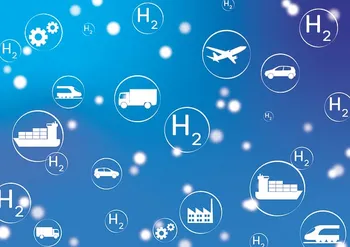A critical infrastructure is defined as the body of systems, networks and assets that are so essential that their continued operation is required to ensure the security of a given nation, its economy, and the public's health and/or safety its operational safety even in extremities such as natural or human caused disasters (earthquakes, floods, volcanoes eruption, massive fires, as well as sabotage or assault resulting emergencies). As such, it is an essential element of society, with specific needs, whose functioning should be preserved, even under exceptional circumstances such as natural disasters.
Currently these needs can be realised by means of portable gensets and/or battery packs. Therefore, it should be ensured that critical infrastructures can be powered using clean alternative energy solutions such as multifuel capable fuel cells, able to reliably provide clean electricity for a sufficiently long timeframe and with highest efficiency.
The demanding operational conditions of systems targeted by the topic will act as a chance for fuel cells-based energy generating systems significantly rising their maturity level and allowing for their further deployment in other areas of the hydrogen economy. Thus, it is necessary to find the means to use the portable robust and long-term autonomous systems based on fuel
...







